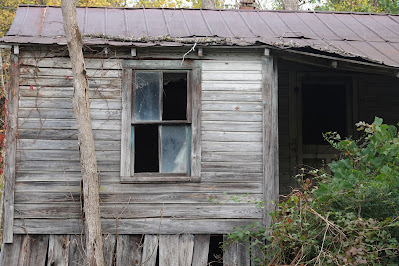I recently re-read a beloved book from my childhood--The Middle Button by Kathryn Worth. It's the story of young Maggie McArn, middle child of a brood of eleven, growing up in the post-Civil War South. The daughter of a well-to-do Presbyterian minister/plantation owner, she has the outlandish dream of becoming a doctor.
It's a terrific feminist story(well, feminist for 1948 which is when it was published) as this strong-willed girl battles her family's traditional mindset--marriage or school-teaching the only acceptable paths for a female, not to mention riding side-saddle-- and the descriptions of everyday life are beautifully vivid. I had looked forward to sharing it with Josie someday.
But . . . as I read I realized that the parts of the book dealing with the tenant farmers--formerly enslaved on this same plantation--and the language used, even an occasional N-word, pretty much ruined the book as something to share with a child.
Yes, that was the way people talked back then, even 'nice' people. And while the depictions of the tenants were probably accurate, the question arises--why were they ignorant? I know now what I didn't know when I read the book as a child--that in much of the South during slavery it was illegal to teach enslaved people to read--and when the war was over, education was still all but impossible for them to attain.
As I think of it, many of my childhood favorites are undoubtedly equally problematic. No, they didn't turn me into a right-wing hater of the Other or an apologist for White Supremacy. But now I realize just why it was that it took me so long (till college and the Civil Rights Movement) to see and feel the injustice of the segregated society I grew up in, to wonder why my grandmother's maid addressed my six-year-old brother as Mr. Frank, why there were different drinking fountains for Black and White, why we stood for "Dixie" at high school football games, why, why, why . . .
This sweet book, like many of my childhood favorites (Uncle Remus, Tom Sawyer, Miss Minerva and William Green Hill) is what I'd call 'soft racism.' And it's insidious in that it normalizes injustice rather than calling it out. And I grew up, feeding on these stories, absorbing this world view. Unconscious or sleeping racism . . .
A recent piece on McSweeney's online magazine confronted (humorously) similar problems in The Little House on the Prairie (Link HERE.)
When I was a child, I spake as a child, I understood as a child, I thought as a child; but when I became a man, I put away childish things.
For now we see through a glass, darkly; but then face to face: now I know in part; but then shall I know even as also I am known.
1 Corinthians 11 and 12.
(I shan't even try to address the inherent sexism in this well known and generally apposite quote.)


6 comments:
Soft racism, as you call it, is incredibly pervasive. It is the water we (white people) swim in and don't even know is there until we start paying attention. It's also insidious; we absorb those stereotypes and prejudices unconsciously and, once they are instilled, it becomes much easier to dismiss and ignore the systemic racism that they lead to.
In this country, white people created racism (prejudice backed up by systems of power) and have benefited from it and continue to benefit from it and it is up to white people to change that dynamic. Much as it was up to men to vote to give women the vote, it is up to us white people to create liberty and justice for all, not just some.
Climbing down off my soapbox now . . .
I couldn't agree more and you have expressed this so well, Vicki. We can't feel guilty about our own past or our early attitudes. I can't do anything about the photo of me in my cot with my black golliwog, of whom I was very fond! Once we have seen the light, however, we must do all we can to make sure our children and grandchildren don't pick up the same misguided ways of seeing. Even though it means not sharing books we once loved.
I wonder if not sharing is the thing to do or is sharing and pointing out the racist attitudes might be better. It must be age appropriate of course. If we limit our reading to non racist, politically correct literature what classics are we giving up?
Those who forget the past are bound to repeat it. Discrimination is still with us not only for blacks but also for immigrants from almost any country. Not only with relatives from our parents generation but also current generations including politicians. Unfortunately there has always been fear of or opposition to folks wo are not the same as "us". Yes, times have changed but not for everyone. Different can feel threatening for some.
As a child of the south, I very much appreciate this perspective. I need to be able to see my upbringing critically, but without judgement; Clearly, with discernment. Hearing though your missive, I do appreciate that, while in many ways my parents lived the status quo of the 50s-70s, they were also people of compassion who saw the best in anyone and often broke with social norms. I'm grateful to you for writing this.
What does black golliwog mean?
Sally, I'm sure Google has the answer. But it's another of those softly racist echoes of the past.
Post a Comment